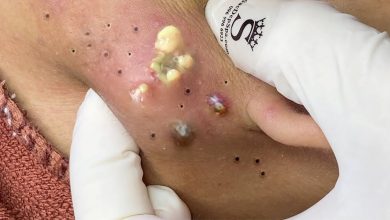How To Tell if Your Dog Has Worms: Symptoms, Treatment, and Prevention
Dogs can get worms inside their bodies for several reasons, typically through contact with contaminated environments or other infected animals. The most common types of worms that infect dogs include intestinal worms like roundworms, hookworms, tapeworms, and whipworms. Here are the main ways dogs can become infected with these parasites:
1. Eating Contaminated Food or Water
- Dogs can ingest worm eggs or larvae when they eat contaminated food or drink from sources that have been infected. For example, if a dog eats feces from an infected animal, it can ingest worm eggs.
2. Fleas and Ticks
- Tapeworms are often transmitted through fleas. If a dog swallows a flea while grooming, it can become infected with tapeworm larvae. Fleas are common carriers of tapeworms.
3. Contact with Infected Soil or Environment
- Some types of worms, like hookworms and roundworms, can be found in contaminated soil, particularly in places where other infected animals have defecated. Dogs may ingest worm eggs while sniffing or licking the ground.
4. Infected Animals (Prey or Another Dog)
- Dogs that hunt small prey animals (like rodents) may ingest worm larvae if the prey is infected. Additionally, dogs may become infected with certain types of worms (like roundworms and hookworms) by coming into contact with other infected dogs or their feces.
5. Mother-to-Puppy Transmission
- Some worms can be passed from an infected mother dog to her puppies, either during pregnancy (through the placenta) or while nursing (through her milk). Roundworms, in particular, can be transmitted this way.
6. Poor Hygiene or Living Conditions
- Dogs that live in unsanitary conditions, such as kennels or areas where waste is not regularly cleaned, are at higher risk of picking up worms.
Signs of Worms in Dogs:
- Vomiting
- Diarrhea
- Weight loss
- Lethargy
- Scooting or licking the anus
- Visible worms in the stool or around the anus (especially tapeworm segments)
Prevention:
- Regular deworming: Vet-recommended deworming treatments can help prevent infections.
- Flea control: Using flea preventatives can reduce the risk of tapeworms.
- Proper hygiene: Clean up dog waste promptly and keep their living areas sanitary.
- Routine vet checkups: Regular checkups will help detect and treat worm infections early.
If you suspect your dog has worms, it’s best to take them to the vet for a proper diagnosis and treatment plan.





